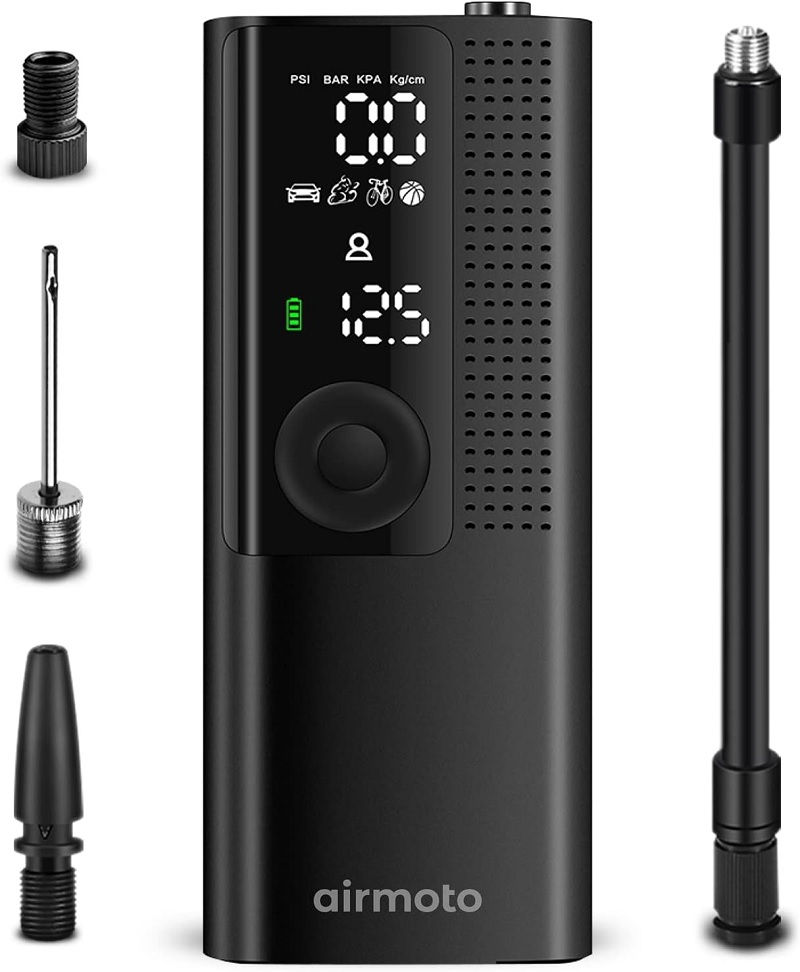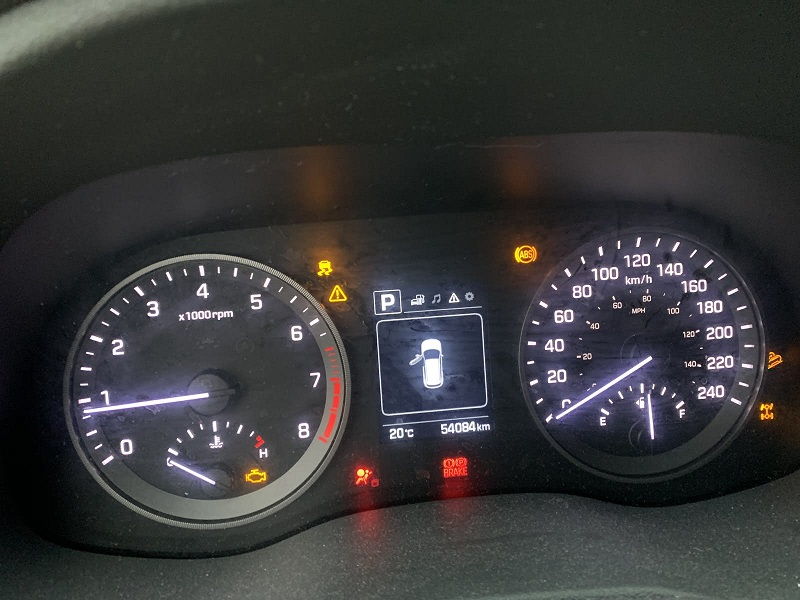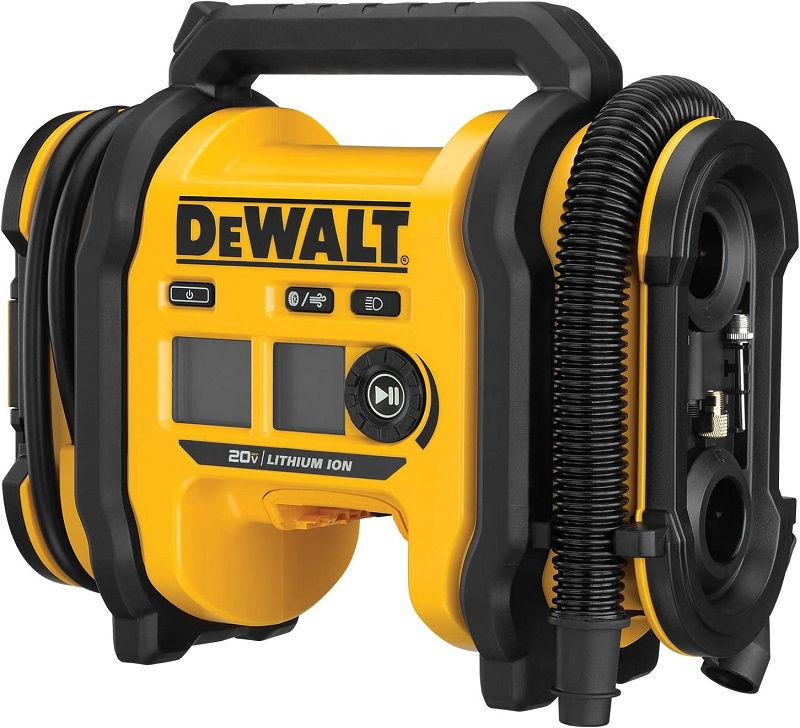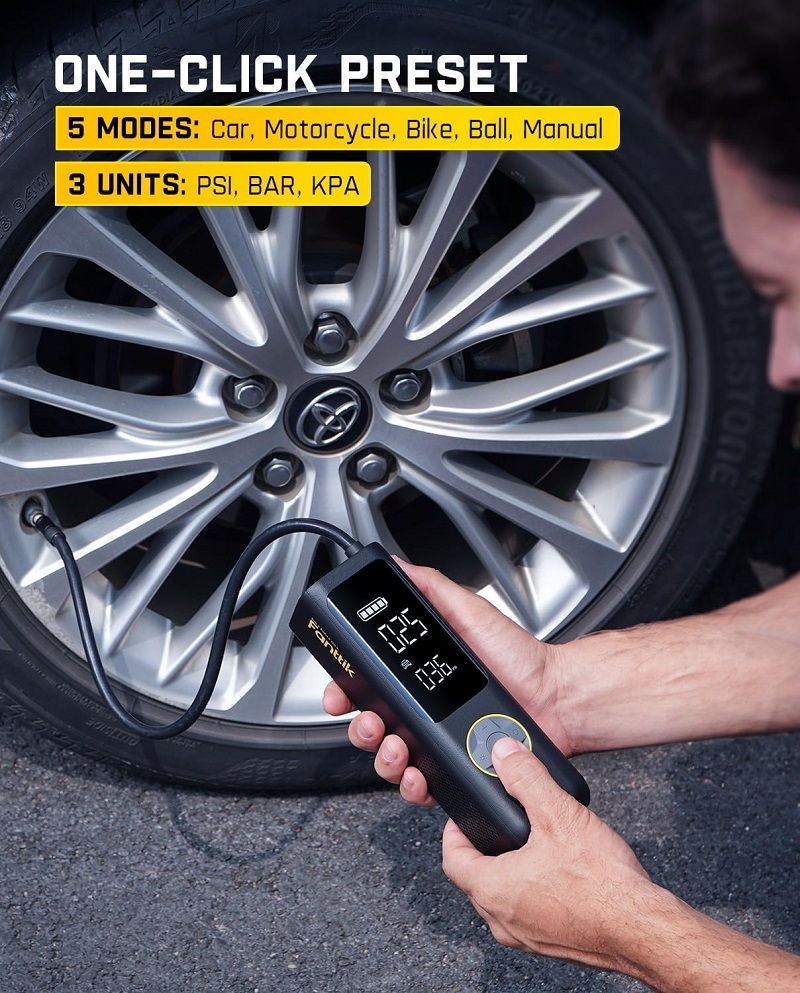This post contains affiliate links. This means I will make a commission at no extra cost to you should you click through and make a purchase [ “As an Amazon Associate, I earn from qualifying purchases.” ]. Read the full disclosure here.
Hyundai Tucson Warning Lights GuideMechanic.Com When it comes to your Hyundai Tucson, understanding the warning lights on your dashboard is crucial.
These lights serve as your vehicle’s way of communicating with you, alerting you to potential issues or malfunctions that require attention.
Ignoring these warning lights can lead to more serious problems down the line, so it’s essential to familiarize yourself with what each light means and how to respond accordingly.
In this comprehensive guide, we will walk you through the different warning lights you may encounter in your Hyundai Tucson, providing you with the knowledge you need to address any potential issues promptly.
Hyundai Tucson Warning Lights: Engine Warning Light

The engine warning light, often depicted as a symbol resembling an engine, is one of the most critical warning lights on your Hyundai Tucson’s dashboard.
See Also: Hyundai Santa FE Catalytic Converter
When this light illuminates, it indicates a problem with your engine or its components. While the issue could be something as minor as a loose gas cap, it could also be a sign of a more severe problem, such as a malfunctioning sensor or a damaged engine part.
Possible Causes
There are several potential causes for the engine warning light to illuminate in your Hyundai Tucson. Some common reasons include:
- Loose or damaged gas cap
- Faulty oxygen sensor
- Malfunctioning catalytic converter
- Engine misfire
- Issues with the ignition system
What to Do
If the engine warning light comes on in your Hyundai Tucson, it’s essential not to ignore it. Here are the steps you should take:
- Check the gas cap: Start by ensuring that the gas cap is securely fastened. If it is loose or damaged, tighten it or replace it.
- Check for obvious issues: Inspect the engine for any visible signs of damage or leaks. Pay attention to any strange noises or smells coming from the engine.
- Check the dashboard for additional warnings: If other warning lights accompany the engine warning light, it may indicate a more severe problem. In such cases, it’s best to stop driving and seek professional assistance.
- Get a diagnostic scan: If the engine warning light persists or you notice any other abnormal behavior, it’s crucial to have a diagnostic scan performed by a qualified mechanic. This scan will identify the specific problem and allow for proper repairs.
Summary
The engine warning light in your Hyundai Tucson is a vital indicator of potential problems with your engine or its components. It’s crucial not to ignore this warning and to take appropriate action to address the issue promptly.
Checking the gas cap, inspecting for visible issues, and getting a diagnostic scan are essential steps in resolving any engine-related problems.
Hyundai Tucson Warning Lights: Battery Warning Light
Check out this DEWALT 20V MAX Tire Inflator, Compact and Portable, Automatic Shut Off, LED Light, Bare Tool Only (DCC020IB)
The battery warning light in your Hyundai Tucson serves as an indicator of an issue with your vehicle’s charging system. When this light illuminates, it means that the battery is not receiving sufficient charging or that there is a problem with the alternator or other related components.
Possible Causes
Several factors can lead to the battery warning light coming on in your Hyundai Tucson. These include:
- Faulty battery
- Malfunctioning alternator
- Loose or damaged battery cables
- Issues with the voltage regulator
- Problems with the serpentine belt
What to Do
When the battery warning light illuminates, follow these steps to address the issue:
- Check the battery connections: Start by inspecting the battery connections for any looseness or corrosion. Ensure that the cables are securely attached to the battery terminals.
- Inspect the serpentine belt: A worn or damaged serpentine belt can affect the charging system’s performance. If the belt appears frayed or cracked, it may be time for a replacement.
- Check the battery voltage: Using a multimeter, measure the voltage of the battery. A fully charged battery should have a voltage of around 12.6 volts. If the voltage is significantly lower, it may be time for a new battery.
- Get the charging system checked: If the battery connections are secure and the battery voltage is within the normal range, it’s crucial to have the charging system checked by a professional. They can diagnose and repair any issues with the alternator, voltage regulator, or other components.
Summary
The battery warning light in your Hyundai Tucson alerts you to potential problems with the charging system.
Checking the battery connections, inspecting the serpentine belt, and measuring the battery voltage are essential steps in addressing the issue.
If these steps do not resolve the problem, seeking professional assistance is necessary to diagnose and repair any charging system-related problems.
See Also: Hyundai Elantra Warning Lights
Hyundai Tucson Warning Lights: Oil Pressure Warning Light
The oil pressure warning light in your Hyundai Tucson is a crucial indicator of low oil pressure levels. When this light illuminates, it means that the engine is not receiving adequate lubrication, which can lead to severe engine damage if not addressed promptly.
Possible Causes
Several factors can cause the oil pressure warning light to come on in your Hyundai Tucson. These include:
- Insufficient oil levels
- Oil pump malfunction
- Oil filter blockage
- Worn engine bearings
- Engine oil viscosity issues
What to Do
If the oil pressure warning light illuminates in your Hyundai Tucson, take the following steps to prevent engine damage:
- Stop the vehicle safely: As soon as it is safe to do so, pull over to the side of the road and turn off the engine. Continuing to drive with low oil pressure can cause severe engine damage.
- Check the oil level: Open the hood and locate the dipstick. Remove it, wipe it clean, reinsert it, and then pull it out again to check the oil level. If it is below the recommended level, add oil as needed.
- Inspect for leaks: Inspect the engine for any signs of oil leaks. Pay attention to areas around the oil filter, oil pan, and oil lines. If you notice any leaks, it’s best to have them repaired by a professional.
- Check the oil viscosity: If the oil level is within the recommended range and there are no visible leaks, it’s possible that the oil’s viscosity is not suitable for your vehicle. Consult your owner’s manual to ensure you are using the correct oil type and viscosity.
- Seek professional assistance: If the oil pressure warning light remains illuminated after performing these checks, it’s crucial to seek professional assistance. A mechanic will be able to diagnose and repair any underlying issues with the oil pump, engine bearings, or other related components.
Summary
The oil pressure warning light in your Hyundai Tucson alerts you to potential problems with the engine’s lubrication system. Checking the oil level, inspecting for leaks, and ensuring the correct oil viscosity are vital steps in addressing the issue.
If the warning light persists, seeking professional assistance is necessary to diagnose and repair any underlying problems.
Hyundai Tucson Warning Lights: Brake System Warning Light
The brake system warning light in your Hyundai Tucson is a critical indicator of potential issues with your vehicle’s braking system.
When this light illuminates, it means that there is a problem that requires immediate attention to ensure your safety on the road.
Possible Causes
Several factors can cause the brake system warning light to come on in your Hyundai Tucson. These include:
- Low brake fluid levels
- Worn brake pads or rotors
- Malfunctioning ABS (Anti-lock Braking System)
- Brake fluid leaks
- Issues with the brake master cylinder
What to Do
If the brake system warning light illuminates in your Hyundai Tucson, follow these steps to address the issue:
- Check the brake fluid level: Locate the brake fluid reservoir under the hood and check the fluid level. If it is low, add the recommended brake fluid type until it reaches the appropriate level.
- Inspect the brake pads and rotors: Visually inspect the brake pads and rotors through the wheel spokes. Worn brake pads or excessively worn or damaged rotors may require replacement.
- Check for brake fluid leaks: Inspect the brake lines, calipers, and connections for any signs of brake fluid leaks. If you notice any leaks, have them repaired immediately.
- Address ABS issues: If the brake system warning light is accompanied by the ABS warning light, it may indicate a problem with the ABS system. In such cases, it’s best to have a professional diagnose and repair the ABS system to ensure optimal braking performance.
- Seek professional assistance: Ifthe brake system warning light remains illuminated after performing these checks or if you are unsure about the cause, it’s crucial to seek professional assistance. A qualified mechanic will be able to diagnose the issue accurately and perform the necessary repairs or replacements.
Summary
The brake system warning light in your Hyundai Tucson should never be ignored. Checking the brake fluid level, inspecting the brake pads and rotors, and addressing any ABS issues are crucial steps in maintaining optimal braking performance.
Seeking professional assistance is necessary if the warning light persists or if you are unsure about the cause of the issue.
Hyundai Tucson Warning Lights: Tire Pressure Monitoring System (TPMS) Warning Light
The TPMS warning light in your Hyundai Tucson is designed to alert you when one or more of your vehicle’s tires are underinflated. Proper tire pressure is essential for optimal handling, fuel efficiency, and tire lifespan.
Possible Causes
Several factors can cause the TPMS warning light to illuminate in your Hyundai Tucson. These include:
- Tire puncture or leakage
- Changes in temperature affecting tire pressure
- Defective TPMS sensor
- Incorrect tire pressure calibration
What to Do
If the TPMS warning light comes on in your Hyundai Tucson, follow these steps to address the issue:
- Check tire pressure: Use a tire pressure gauge to check the pressure in each tire, including the spare tire. Refer to the recommended tire pressure listed in your owner’s manual or on the driver’s side door jamb.
- Inflate or deflate tires as needed: Adjust the tire pressure according to the recommended specifications. If a tire is underinflated, fill it with air until it reaches the correct pressure. If a tire is overinflated, release air until it reaches the appropriate level.
- Inspect tires for damage: Visually inspect each tire for any signs of punctures, cuts, or bulges. If you notice any damage, have the tire repaired or replaced as necessary.
- Reset the TPMS system: In some cases, manually resetting the TPMS system may be necessary. Refer to your owner’s manual for instructions on how to reset the TPMS.
- Replace defective TPMS sensor: If the TPMS warning light persists after performing these steps, it’s possible that a TPMS sensor is defective and requires replacement. Consult a professional to diagnose and replace the faulty sensor.
Summary
The TPMS warning light in your Hyundai Tucson is an important indicator of underinflated tires. Checking the tire pressure, inflating or deflating tires as needed, inspecting for tire damage, and resetting the TPMS system are essential steps in addressing the issue.
See Also: P0441 Hyundai Veloster: Diagnosis And Repair
If the warning light persists, seeking professional assistance is recommended to diagnose and replace any defective TPMS sensors.
Hyundai Tucson Warning Lights: Airbag Warning Light
The airbag warning light in your Hyundai Tucson serves as an indicator of a potential problem with your vehicle’s airbag system.
The airbags are a critical safety feature that protects occupants in the event of a collision, and it’s crucial to ensure their proper functioning.
Possible Causes
Several factors can cause the airbag warning light to illuminate in your Hyundai Tucson. These include:
- Faulty airbag sensor
- Wiring or electrical issues
- Malfunctioning airbag control module
- Accidental deployment of the airbags
What to Do
If the airbag warning light comes on in your Hyundai Tucson, follow these steps to address the issue:
- Check the seat belts: Ensure that all seat belts are properly fastened and not damaged or twisted. In some cases, a loose or improperly fastened seat belt can trigger the airbag warning light.
- Inspect for any recent impacts: If your vehicle has been involved in a collision or experienced a significant impact, it’s possible that the airbag system has been triggered. In such cases, it’s crucial to have the system inspected and repaired by a professional.
- Check the wiring and connections: Inspect the wiring and connections of the airbag system for any signs of damage, loose connections, or corrosion. If you notice any issues, have them repaired by a qualified technician.
- Reset the airbag system: In some cases, resetting the airbag system may resolve the issue. Consult your owner’s manual or a professional for instructions on how to reset the airbag system.
- Seek professional assistance: If the airbag warning light remains illuminated after performing these steps or if you are unsure about the cause of the issue, it’s crucial to seek professional assistance. A qualified mechanic will be able to diagnose and repair any underlying problems with the airbag system.
Summary
The airbag warning light in your Hyundai Tucson alerts you to potential problems with the airbag system.
Checking the seat belts, inspecting for recent impacts, and examining the wiring and connections are important steps in addressing the issue.
Seeking professional assistance is necessary if the warning light persists or if you are uncertain about the cause of the problem.
Hyundai Tucson Warning Lights: ABS Warning Light
The ABS warning light in your Hyundai Tucson indicates a potential issue with the Anti-lock Braking System. The ABS system is designed to prevent the wheels from locking up during heavy braking, allowing for better control and stability.
Possible Causes
Several factors can cause the ABS warning light to illuminate in your Hyundai Tucson. These include:
- Malfunctioning ABS sensors
- Issues with the ABS control module
- Faulty ABS pump or valves
- Low brake fluid levels
- Worn brake pads or rotors
What to Do
If the ABS warning light comes on in your Hyundai Tucson, follow these steps to address the issue:
- Check the brake fluid level: Locate the brake fluid reservoir under the hood and check the fluid level. If it is low, add the recommended brake fluid type until it reaches the appropriate level.
- Inspect the brake pads and rotors: Visually inspect the brake pads and rotors through the wheel spokes. Worn brake pads or excessively worn or damaged rotors may require replacement.
- Check for ABS sensor issues: Inspect the ABS sensors located near each wheel for any signs of damage, dirt, or corrosion. Clean or replace the sensors as necessary.
- Reset the ABS system: In some cases, resetting the ABS system may resolve the issue. Consult your owner’s manual or a professional for instructions on how to reset the ABS system.
- Seek professional assistance: If the ABS warning light remains illuminated after performing these steps or if you are unsure about the cause of the issue, it’s crucial to seek professional assistance. A qualified mechanic will be able to diagnose and repair any underlying problems with the ABS system.
Summary
The ABS warning light in your Hyundai Tucson signals potential issues with the Anti-lock Braking System. Checking the brake fluid level, inspecting the brake pads and rotors, and addressing any ABS sensor issues are important steps in resolving the problem.
See Also: P0441 Hyundai Tucson: What Causes P0441
Seeking professional assistance is necessary if the warning light persists or if you are uncertain about the cause of the issue.
Hyundai Tucson Warning Lights: Traction Control System (TCS) Warning Light
The TCS warning light in your Hyundai Tucson indicates a potential issue with the Traction Control System. The TCS system helps maintain stability and control by reducing wheel spin during acceleration.
Possible Causes
Several factors can cause the TCS warning light to illuminate in your Hyundai Tucson. These include:
- Malfunctioning TCS sensors
- Issues with the TCS control module
- Faulty wheel speed sensors
- Worn or damaged tires
- Problems with the ABS system
What to Do
If the TCS warning light comes on in your Hyundai Tucson, follow these steps to address the issue:
- Check the tire condition: Inspect the tires for any signs of wear, damage, or low tread depth. Replace any worn or damaged tires, and ensure that all tires are properly inflated.
- Inspect the TCS sensors: Inspect the TCS sensors located near each wheel for any signs of damage, dirt, or corrosion. Clean or replace the sensors as necessary.
- Reset the TCS system: In some cases, resetting the TCS system may resolve the issue. Consult your owner’s manual or a professional for instructions on how to reset the TCS system.
Seek professional assistance: If the TCS warning light remains illuminated after performing these steps or if you are unsure about the cause of the issue, it’s crucial to seek professional assistance
Summary
The TCS warning light in your Hyundai Tucson alerts you to potential issues with the Traction Control System. Checking the tire condition, inspecting the TCS sensors, and resetting the TCS system are important steps in resolving the problem. Seeking professional assistance is necessary if the warning light persists or if you are uncertain about the cause of the issue.
Hyundai Tucson Warning Lights: Check Engine Light
The check engine light in your Hyundai Tucson is a general warning that there is a problem with your vehicle’s engine or emission control system. It can indicate a range of issues, from minor to more severe, and should not be ignored.
Possible Causes
There are numerous potential causes for the check engine light to illuminate in your Hyundai Tucson. Some common reasons include:
- Loose or damaged gas cap
- Faulty oxygen sensor
- Malfunctioning catalytic converter
- Engine misfire
- Issues with the ignition system
- Problems with the fuel system
What to Do
If the check engine light comes on in your Hyundai Tucson, follow these steps to address the issue:
- Check the gas cap: Start by ensuring that the gas cap is securely fastened. If it is loose or damaged, tighten it or replace it.
- Check for obvious issues: Inspect the engine for any visible signs of damage or leaks. Pay attention to any strange noises or smells coming from the engine.
- Check the dashboard for additional warnings: If other warning lights accompany the check engine light, it may indicate a more severe problem. In such cases, it’s best to stop driving and seek professional assistance.
- Get a diagnostic scan: If the check engine light persists or you notice any other abnormal behavior, it’s crucial to have a diagnostic scan performed by a qualified mechanic. This scan will identify the specific problem and allow for proper repairs.
- Address the issue: Once the cause of the check engine light is identified, take appropriate action to address the issue. This may involve replacing a faulty sensor, repairing a damaged component, or performing necessary maintenance.
Summary
The check engine light in your Hyundai Tucson is a general warning that there is a problem with the engine or emission control system. Checking the gas cap, inspecting for visible issues, and getting a diagnostic scan are important steps in resolving the issue. Taking appropriate action based on the scan results is crucial in ensuring the proper functioning of your vehicle.
Hyundai Tucson Warning Lights: Electronic Stability Control (ESC) Warning Light
The ESC warning light in your Hyundai Tucson indicates a potential problem with the Electronic Stability Control system. The ESC system helps maintain stability and control by automatically applying brakes to individual wheels during sudden maneuvers.
Possible Causes
Several factors can cause the ESC warning light to illuminate in your Hyundai Tucson. These include:
- Malfunctioning ESC sensors
- Issues with the ESC control module
- Faulty wheel speed sensors
- Problems with the ABS system
What to Do
If the ESC warning light comes on in your Hyundai Tucson, follow these steps to address the issue:
- Check the tire condition: Inspect the tires for any signs of wear, damage, or low tread depth. Replace any worn or damaged tires, and ensure that all tires are properly inflated.
- Inspect the ESC sensors: Inspect the ESC sensors located near each wheel for any signs of damage, dirt, or corrosion. Clean or replace the sensors as necessary.
- Reset the ESC system: In some cases, resetting the ESC system may resolve the issue. Consult your owner’s manual or a professional for instructions on how to reset the ESC system.
- Seek professional assistance: If the ESC warning light remains illuminated after performing these steps or if you are unsure about the cause of the issue, it’s crucial to seek professional assistance. A qualified mechanic will be able to diagnose and repair any underlying problems with the ESC system.
Summary
The ESC warning light in your Hyundai Tucson alerts you to potential issues with the Electronic Stability Control system.
See Also: Hyundai Catalytic Converter
Checking the tire condition, inspecting the ESC sensors, and resetting the ESC system are important steps in resolving the problem. Seeking professional assistance is necessary if the warning light persists or if you are uncertain about the cause of the issue.
Conclusion
Understanding the warning lights in your Hyundai Tucson is essential for maintaining the health and performance of your vehicle. Each warning light serves as a valuable indicator of potential issues that require attention.
By familiarizing yourself with the different warning lights and their meanings, you can quickly identify and address any potential problems.
Remember, ignoring these warning lights can lead to more severe problems down the line, compromising your safety on the road and potentially causing costly repairs. Always prioritize prompt attention and seek professional assistance when necessary.
Stay informed, stay safe, and keep your Hyundai Tucson running smoothly!
Related video of Understanding Hyundai Tucson Warning Lights: A Comprehensive Guide
- P007F 62 Code Range Rover - June 10, 2024
- P007F Ford Focus: Causes, Diagnosis, and Solutions - June 5, 2024
- P0080 Ford: Causes, Diagnosis, and Solutions - May 31, 2024



